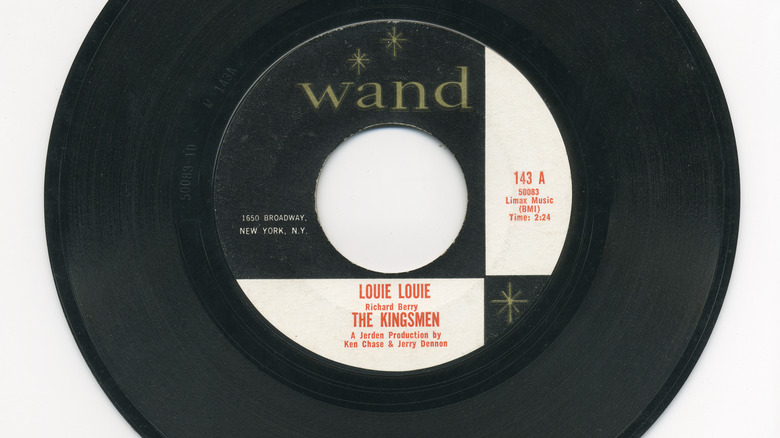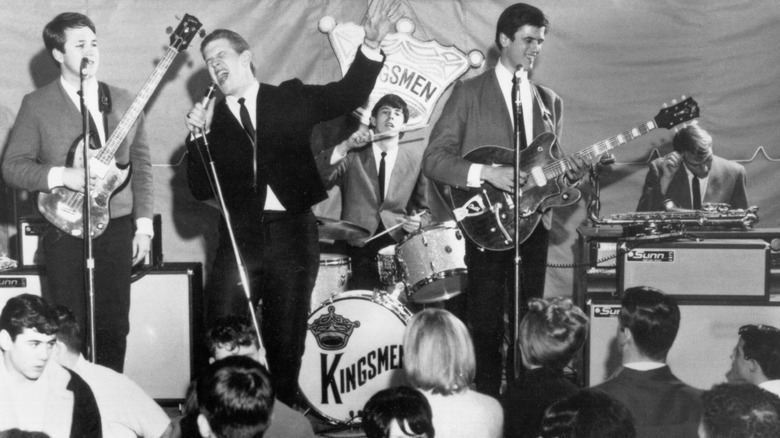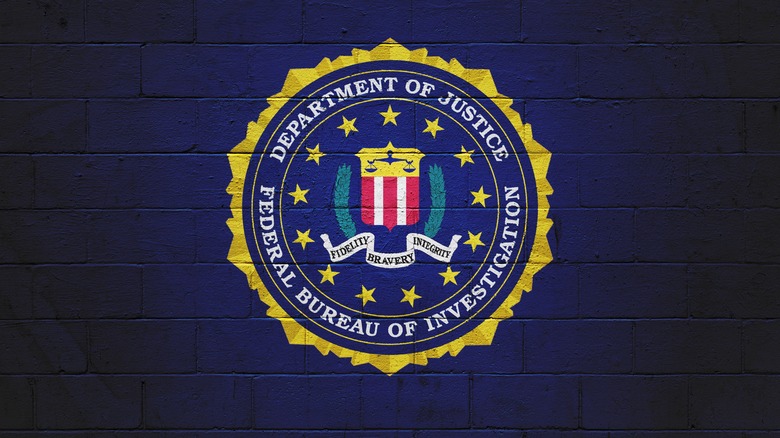The FBI Records On The Song Louie, Louie Explained
Rock 'n' roll band the Kingsmen's recording of a calypso-style 1950s song — "Louie Louie" — hit the airwaves in 1963. The singing was so garbled that it provided hormonal teens and their excitable parents license to imagine they were hearing all kinds of lascivious lyrics. Soon the federal government got involved after receiving numerous complaints from concerned citizens. The first came from Indiana Governor Matthew Welsh, who'd been tipped off by two high school students who believed the song contained dirty lyrics — "smut," in the words of the letter writers, according to the IndyStar. Welsh acted swiftly and requested the song be removed from the state's airwaves.
The Federal Bureau of Investigation got involved after being sent letters from across the country, some of which included what the letter-writers believed were the "true" lyrics. For more than two years FBI agents tracked down leads while the agency's scientists attempted to decipher the song and determine if the band's single violated the federal law that banned the interstate transportation of obscene matter, per the FBI and NPR.
Indecipherable at any speed
In the spring of 1963, a Portland, Oregon garage band called the Kingsman went into a local studio and recorded their infamous single. The lead singer, Jack Ely, had braces on his teeth, and his microphone was too far away, which led to his especially mumbled delivery on the band's version of "Louie Louie," according to The New Yorker. The song soon became a hit for the band and sparked the FBI probe. "Kids ... would hear these versions of the song, and they would pass around these written notes of what they thought were the lyrics," documentary filmmaker Eric Predoehl told NPR in 2015.
The FBI and Justice Department also received concerned letters from Florida, Michigan, and elsewhere. Eventually, six FBI field offices got involved, with agents interviewing record executives and the song's composer, Richard Berry — but not singer Jack Ely, according to "The Mind of the Censor and the Eye of the Beholder: The First Amendment and the Censor's Dilemma." The FBI scientists slowed the recording down and sped it up, "but it was indecipherable at any speed," Predoehl told NPR.
There actually is a curse word in there
"Louie Louie" was actually about a sailor missing his girlfriend and not an explicit sexual fantasy as some of the letter writers claimed, per Sarasota Magazine. As Dave Marsh wrote in his book "Louie Louie: The History and Mythology of the World's Most Famous Rock 'n Roll Song," it just so happened that Jack Ely's rendition involved a "bunch of lyrics sung ... with so tangled a tongue that not even FBI scientists could decipher them."
By the end of 1965, the FBI file contained 119 pages representing months and months of work by agents. But on December 2, 1965, an Assistant U.S. attorney recommended dropping the investigation since there was "no evidence of a violation of the Federal Interstate Transportation of Obscene Matter statutes," per the FBI file. Jack Ely, interviewed in 2012, said he hadn't sung anything obscene. But there actually is a curse word in the song: The band's drummer, Lynn Easton, dropped one of his sticks along with an F-bomb that was picked up in the recording. The FBI missed it.


